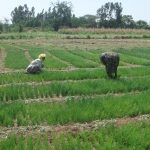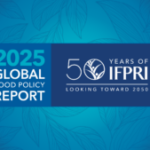Increasing farmer adoption of improved crop varieties is a key way to improve agricultural productivity and reduce poverty in low-income countries. Yet in these areas, smallholder farmers’ reported yields for such varieties often fall far short of researchers’ and policymakers’ expectations. What accounts for this gapbetween the high yield numbers documented in researcher-managed field trials […]
A comparative study of the legal and regulatory dimension of seed sector development in Sub-Saharan Africa using regulatory systems maps: The case of Ethiopia, Rwanda, and Uganda
Harmonization of Africa's rules and regulations for seed sector development began several decades ago through efforts of its regional economic communities. This process of regional alignment has, to a degree, incorporated a more pluralistic approach that considers and acknowledges that multiple seed systems make up the seed sector and that national legal systems may contain […]
Country profile – Ethiopia: Gender, climate change, and nutrition linkages
This brief provides an overview of Ethiopia’s climate risks, gender dynamics, and nutrition challenges and includes discussion of how these issues are intertwined, an overview of the policy landscape, and recommendations for strengthening the integration of gender, climate change and nutrition in the country. With a population of approximately 126.5 million people as of 2023, […]
Fertilizer, soil health, and economic shocks: A synthesis of recent evidence
This paper evaluates the impact of three interventions (seed trial packs, consumption-oriented interventions, and agricultural training, either individually or bundled) in improving varietal turnover in northern Nigeria via a 3-year cluster-randomized controlled trial. A secondary objective of the paper is to evaluate the performance of these varieties in farmers’ fields. Results show that seed trial […]
2025 Global Food Policy Report
Over the past 50 years, the world’s food systems have evolved tremendously amid major economic, environmental, and social changes. Throughout this period, policy research has played a crucial role in providing evidence and analysis to inform decision-making that supports agricultural growth, better livelihoods, and improved food security, nutrition, and well-being for all. As a special […]
- « Previous Page
- 1
- …
- 6
- 7
- 8
- 9
- 10
- …
- 123
- Next Page »




